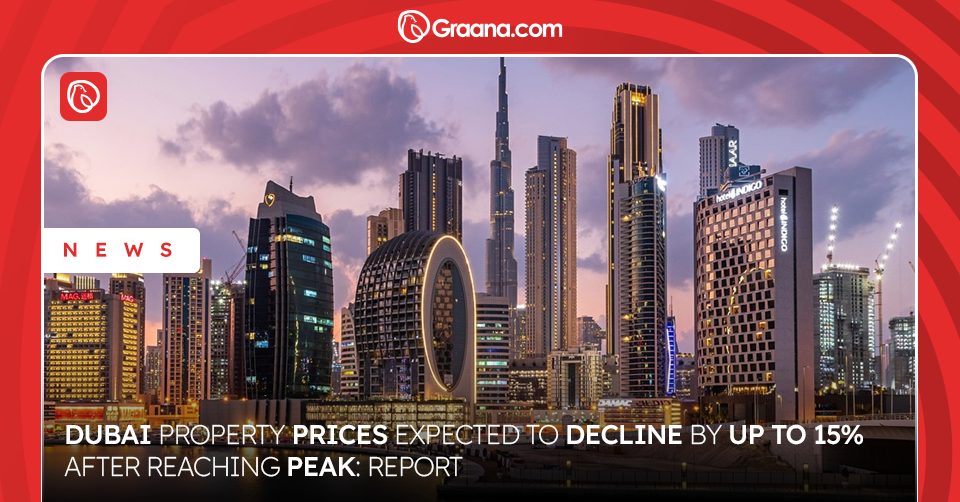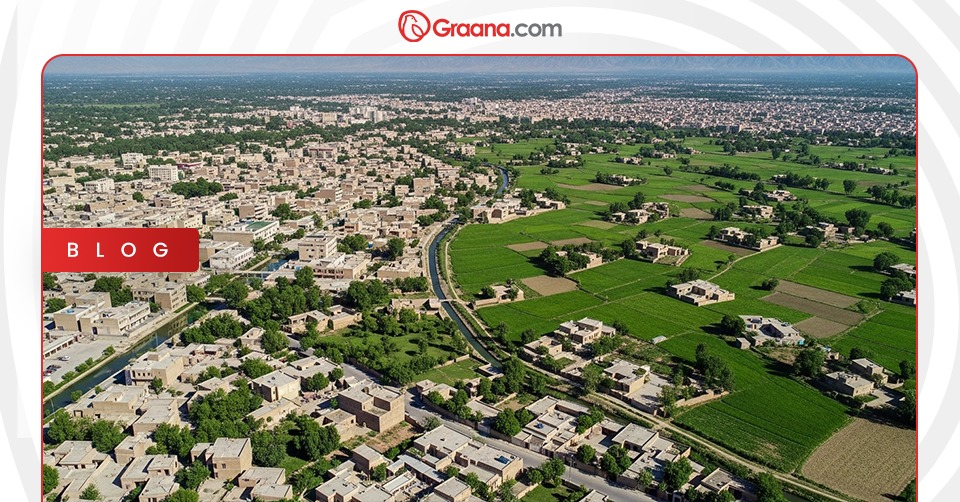Dubai’s real estate prices have reached their peak in the current cycle, with a market correction anticipated soon, though the decline is unlikely to exceed 15%, according to a report released on Thursday.
Global credit ratings agency Fitch Ratings forecasts a significant surge in new housing supply between 2025 and 2027, with an estimated 16% growth—far surpassing the projected 5% population increase.
“In our base scenario, we expect that property prices have either already peaked or will reach their highest point by 2025. A price correction is anticipated in the second half of 2025 or into 2026, but it is unlikely to exceed 15%, particularly if delays in project completions continue,” Fitch analysts stated.
The report also highlights a shift in developer pre-sale payment plans. Developers are expected to reduce the upfront payment requirements during construction from the current average of 70% to around 50%. This move is seen as an effort to ease property acquisition for investors.
Dubai’s property sector has experienced a robust four-year boom, driven largely by a wave of foreign investors, high-net-worth individuals, and professionals relocating to the UAE. Fitch’s data indicates that residential property prices surged approximately 60% between 2022 and Q1 2025, buoyed by post-pandemic immigration and Dubai’s strong economic fundamentals.
The report notes that prime real estate assets are expected to withstand the potential market correction better due to their investor profile—typically long-term holders with higher risk tolerance.
Record-Breaking Supply Ahead
The UAE is expected to witness a record influx of new residential units, with an estimated 250,000 units projected for release following the high volume of projects launched in 2023–2024. The year 2026 is expected to see the highest number of deliveries, with approximately 120,000 units scheduled for handover—compared to 30,000 in 2024 and 90,000 in 2025.
Dubai’s population is also expanding, crossing 3.948 million as of May 29, with official figures showing a growth of 51,295 people in just the first quarter of 2025, bringing the total to 3.914 million by the end of March.
Reduced Exposure for Banks
Fitch also observed a notable decline in UAE banks’ direct exposure to the real estate sector. This is largely due to stronger cash flows from off-plan sales—often completed within days of launch—backed by escrow accounts and rising interest rates. Additionally, several banks are scaling back real estate lending as part of broader de-risking strategies and stricter underwriting policies.
Between 2022 and 2024, corporate real estate lending fell by AED 66 billion, lowering its share in total domestic loans to 14% by the end of 2024. Mortgage loans comprised an additional 8%, bringing total real estate-related lending exposure to 22% of the banking sector’s loan portfolio.




